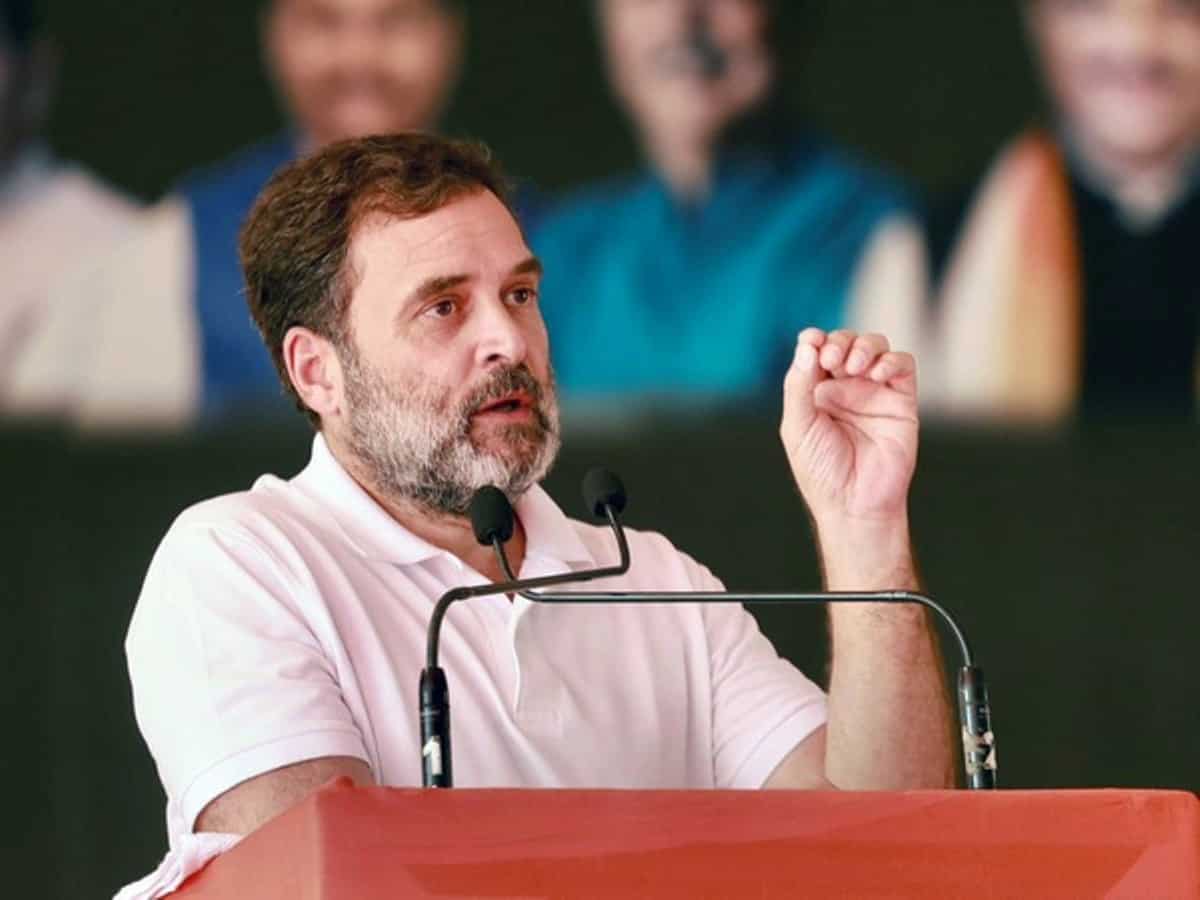
Ahmedabad: The conviction of Rahul Gandhi in a defamation case by a Surat court that triggered the Congress leader’s legal fight for the restoration of his Lok Sabha membership, and Biparjoy cyclone leaving a trail of destruction were two key developments that took place in Gujarat in 2023.
The year also gave several reasons for the residents of Gujarat to cheer with the inclusion of the state’s traditional dance form Garba in the list of Intangible Cultural Heritage by UNESCO, inauguration of the Surat Diamond Bourse and two Australia-based universities setting up their campuses in Gandhinagar-based GIFT City among other things.
On March 23, the court in Surat sentenced Rahul Gandhi to two years in jail in the defamation case filed against him over his “Modi surname” remark.
Former Gujarat minister Purnesh Modi had filed the criminal defamation case against Gandhi in 2019 over his “How come all thieves have Modi as the common surname?” comment made during an election rally in Kolar in Karnataka on April 13, 2019.
After his conviction, Gandhi was disqualified as a member of the Lok Sabha. A punishment for two years and above automatically disqualifies a lawmaker.
As per the rules, Gandhi could be reinstated as an MP only if the court stayed his conviction. The former Congress president’s efforts to secure a stay on his conviction failed in the Surat sessions court and Gujarat High Court as they rejected his pleas.
Finally in August, the Supreme Court stayed his conviction, paving the way for the restoration of his Lok Sabha membership. Gandhi represents Wayanad Lok Sabha constituency in Kerala.
On March 31, the Gujarat high court quashed the seven-year-old order of the Central Information Commission, asking the Gujarat University to provide information on Prime Minister Narendra Modi’s educational degree to Delhi Chief Minister Arvind Kejriwal, and imposed a fine of Rs 25,000 on him.
Kejriwal’s review plea in the matter was also rejected by the single-judge bench of the high court, after which he approached a division bench of the high court.
In April, the Gujarat University filed a criminal defamation case against Kejriwal and AAP leader Sanjay Singh over their remarks against the university on the issue of the PM’s degree. The case is still being heard.
Rashtriya Janata Dal leader Tejashwi Yadav is also facing a criminal defamation case for his “Only Gujaratis can be thugs (fraudsters)” remark. The case against him was filed in May in Ahmedabad court.
Cyclone Biparjoy, meaning disaster or calamity in Bengali, rampaged through Kutch district of Gujarat on June 15, causing massive damage to crops and power supply in the area. However, due to the meticulous evacuation of over 1.10 lakh people from the coastal region, no lives were lost in the natural disaster, said the authorities.
On July 20, nine persons were killed and 10 others injured when a speeding car driven by Tathya Patel, son of a builder, ploughed into a crowd gathered at an accident site on a bridge in Ahmedabad city. Patel was arrested and is currently in jail.
On January 27, Managing Director of Oreva Group Jaysukh Patel surrendered before a court in connection with the Morbi suspension bridge collapse in October 2022 in which 135 people were killed.
Patel was arrested and is behind bars at present.
On February 22, the Gujarat High Court directed the Oreva group, the company that maintained the Morbi suspension bridge, to pay Rs 10 lakh each as interim compensation to the kin of victims. The court also asked it to look after the education of children who have been orphaned in the incident.
In the same month, the Gujarat police arrested two persons for sending a Gandhinagar-based family of Brijkumar Yadav illegally to the US. Yadav died after he fell while trying to scale the US-Mexico border wall while his wife and young child managed to cross over.
Four members of a family from Vijapur taluka of Mehsana drowned in a river between Canada and the US in April this year while they were trying to enter the US illegally. Mehsana police later registered a case against three agents.
The year also saw large-scale seizure of narcotic drugs in the state.
On March 6, the Indian Coast Guard apprehended an Iranian boat with five crew members from that country carrying 61 kgs of heroin worth Rs 425 crore near Okha in Kutch district off Gujarat coast, while in May, the state ATS recovered 31 kg heroin worth Rs 217 crore from Rajkot district and arrested a Nigerian national.
In April, a court in Ahmedabad acquitted all the 67 accused, including former Bharatiya Janata Party (BJP) minister Maya Kodnani, in the 2002 case of Naroda Gam riots, in which 11 people were killed.
Garba, Gujarat’s traditional dance form, was included in the list of Intangible Cultural Heritage by UNESCO earlier this month.
The Gujarat government signed an MoU with computer storage chip maker Micron for setting up of India’s first semiconductor assembly and test facility at Sanand in Ahmedabad district. The pact was inked in June.
In February, the International Financial Services Centres Authority received an application from Deakin University of Australia to set up its campus in GIFT City. Apart from Deakin, the University of Wollongong (from Australia) is also setting up its campus there.
They are the first universities in the world to open international campuses in India. They will begin courses from July next year.
On December 17, Prime Minister Narendra Modi inaugurated the Surat Diamond Bourse building, touted as the world’s biggest office.
Although Gujarat is a ‘dry state’, the government earlier this month decided to change rules to allow ‘wine and dine’ facilities in GIFT City area to provide a global business ecosystem to global investors.
Ahmedabad hosted the final match of the cricket World Cup played between India and Australia at the Narendra Modi Stadium. However, India lost the match.



